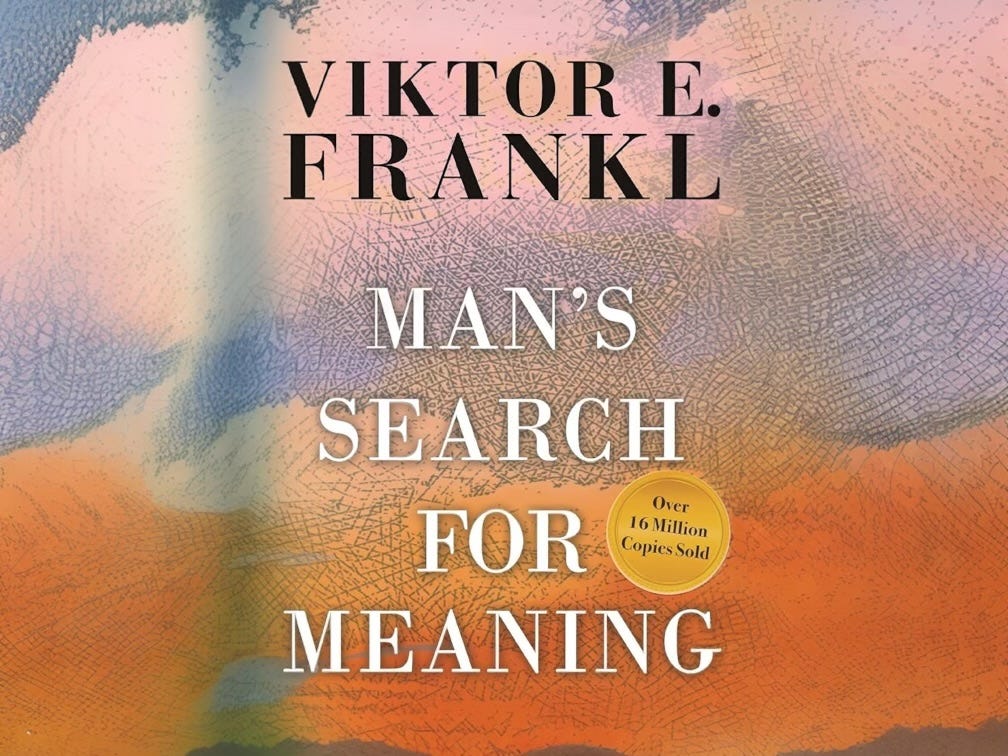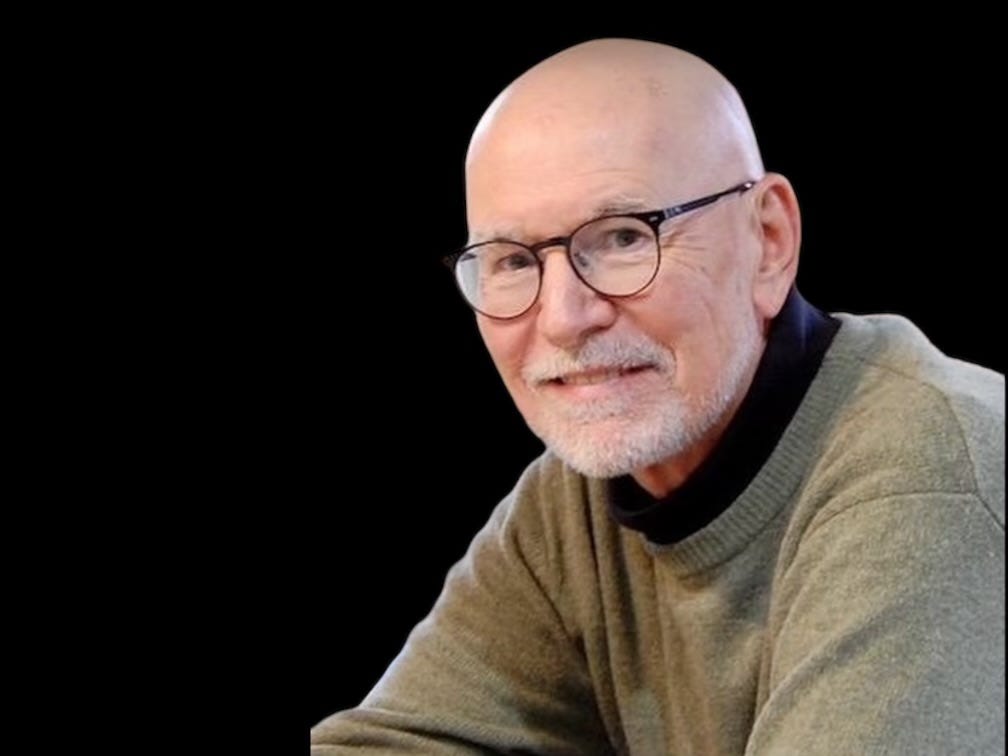By Guest Contributing Writer Marc S. Friedman
"Man's Search for Meaning" by Viktor E. Frankl is a profound and moving memoir that transcends the genre of Holocaust literature. Written in 1946, the book is a testament to the human spirit’s resilience in the face of unimaginable suffering.
Frankl, a renowned psychiatrist, recounts his harrowing experiences in Nazi concentration camps during World War II and introduces his psychological theory known as logotherapy. This dual structure—memoir and psychological treatise—gives the book its enduring power and relevance.
The first part of the book focuses on Frankl's life in the concentration camps, where he endured unimaginable suffering. He describes the dehumanizing conditions that he and other prisoners faced—constant hunger, cold, and the ever-present threat of death.
Frankl’s account is unflinchingly honest, yet it is not simply a tale of despair. What sets Frankl’s story apart is his ability to step back and analyze the situation, observing how he and his fellow prisoners coped with their suffering. This analytical approach offers readers a unique perspective on the human capacity for resilience.
A central theme in Frankl's account is the idea that even in the most horrific circumstances, life can still hold meaning. Frankl argues that finding meaning in suffering is crucial for survival. This idea is the cornerstone of logotherapy, discussed in Part Two of the book, which is based on the belief that the primary drive in human beings is the search for meaning.
Unlike Freud, who suggested that humans are driven by the pursuit of pleasure, or Adler, who proposed that the quest for power is the main motivator, Frankl believed that the will to find meaning in life is the most fundamental human drive.
I read this classic of Holocaust literature several years ago and reread it recently. Reading Frankl's "Man's Search for Meaning" has had a profound impact on me, especially in my later years. Frankl's exploration of the human capacity to find meaning, even in the most challenging circumstances, resonated deeply with my own experiences and pursuits though in no way comparable to Frankl’s years in concentration camps.
His theory of logotherapy—the idea that the primary drive in human beings is the search for meaning—has given me a framework to understand my own journey and the significance of the choices I have made.
As I have grown older, Frankl’s emphasis on the search for meaning has become increasingly relevant. My own search for meaning has been manifested in several ways, each contributing to the rich fabric of my life.
One of the most significant aspects has been my role within my family. Loving and supporting my family, especially during times of difficulty and illness, has given my life profound purpose. There is a deep sense of fulfillment in being there for my loved ones, providing comfort, and helping them navigate through tough times. Frankl’s assertion that meaning can be found in love and in our relationships with others rings true in these moments.
Another way I have found meaning is through coaching. I have had the privilege of helping others fulfill their potential. Coaching allows me to share my experience and knowledge, guiding others toward their own success and fulfillment.
It is a role that not only benefits those I coach but also enriches my own life. Knowing that I am making a positive impact on others, helping them to achieve their goals and realize their potential, brings a deep sense of personal satisfaction and purpose. Frankl’s idea about finding meaning through work—through doing something significant—is vividly reflected in my coaching practice.
Writing has also been a significant part of my search for meaning. Recently, I have authored numerous book reviews and essays, some of which have touched readers deeply. The act of writing itself is meaningful to me; it is a way to express my thoughts, share my insights, and connect with others.
When readers tell me that something I wrote resonated with them or made a difference in their lives, it reinforces the idea that our words and ideas can have a powerful impact. Frankl’s belief that meaning can be found in creative expression and in the influence we have on others is something I experience firsthand through my writing.
What I find most compelling about Frankl’s work is his assertion that we can always choose our response to any situation. He famously wrote, “When we are no longer able to change a situation, we are challenged to change ourselves.”
This idea of inner freedom—the ability to exercise our free will to choose our attitude and approach, no matter the external circumstances—has been a guiding principle in my life. Whether facing personal challenges, supporting family members through illness and other crises, or helping others navigate their own paths, I have learned that the way I choose to respond can make all the difference. It is a lesson that has helped me find meaning in situations that might otherwise seem overwhelming or hopeless.
Frankl’s work has had a lasting impact on how I understand my life’s purpose. His theory of logotherapy suggests that meaning can be found in three primary ways: through work, through love, and through the courage to face suffering.
I see these elements reflected in my own life—through my dedication to my family, my commitment to coaching, and my passion for writing. Each of these activities gives my life a sense of purpose and fulfillment, helping me to navigate my later life with a deeper sense of meaning.
In conclusion, Frankl’s "Man's Search for Meaning" has not only provided me with profound insights into the nature of human resilience but has also influenced how I live my life. His belief in the power of meaning to transform even the most difficult circumstances has guided me in my later years, helping me to find purpose in my relationships, my work, and my creative endeavors.
Frankl’s ideas are not just theoretical concepts; they are practical, lived experiences that continue to shape how I approach each day. “Man’s Search for Meaning” remains a timeless and essential work, offering wisdom and guidance for anyone seeking to understand the deeper meaning of their life.
I hold a B.A degree in Philosophy from The Johns Hopkins University and a Juris Doctor degree from The George Washington University Law School.








I just saw you pop into the "Notes" zoom call on Writers at Work. I loved your comment. And, then when I hit your feed, I saw "Man's Search for Meaning" as the pinned post today! ONE of my life altering books as well! WOW! This book also helped me shape my life!
Marc, this is a brilliant essay that truyl captures Victor Frankl, a man I've admired almost my entire life. I have also read and reread his book and Man's Search for Meaning many times. With each reading I learn more and I think about my life and my family more. Thank you for this invaluable review.